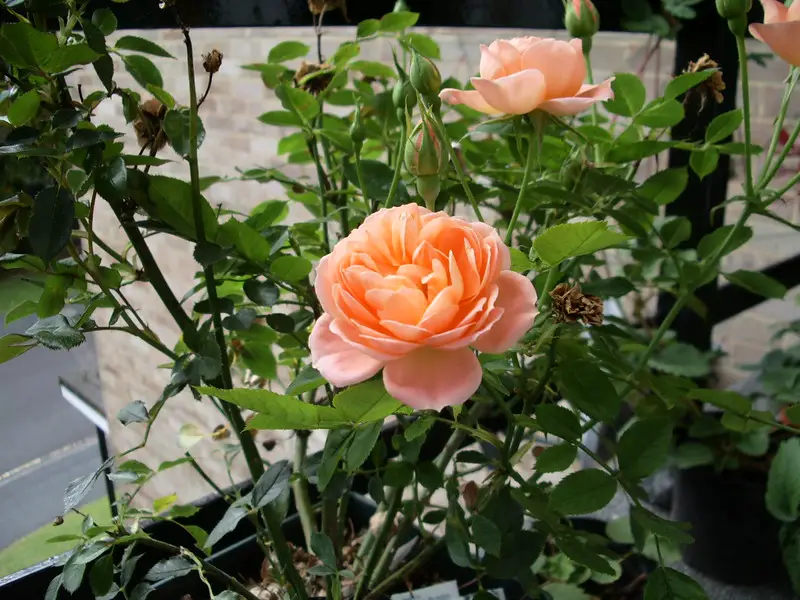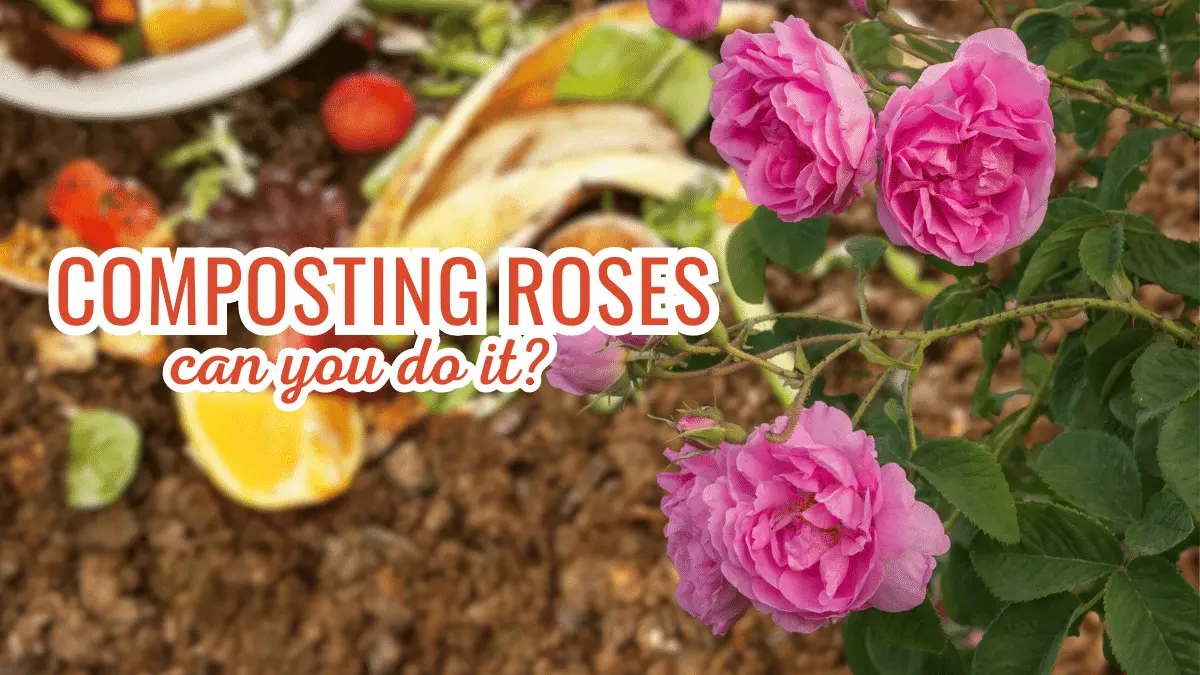We use affiliate links to run our site. When you buy through links on our site, we may earn an affiliate commission, without any added cost to you. Learn more
Have you ever wondered if those beautiful rose blooms can be composted after they wilt? What would happen if you tossed your floral arrangements into the compost pile – Would they break down into rich, nourishing soil for your garden?
Composting rose flowers offers some powerful benefits for gardeners and the environment. But how exactly do you compost roses, and what steps should you take to do it successfully?
Read on to unlock the secrets of composting roses!
Table of Contents
The Good Things About Composting Rose Flowers
Composting is letting nature recycle plants back into the soil. It is good for Mother Earth. When we compost rose flowers, the soil gets better in these ways:
Nutrient-rich soil – The composted roses turn into dark, crumbly humus. This has lots of good nutrients for plants.
Better soil – Compost helps the soil hold water and nutrients. This is good for roses since they like soil that drains but still holds some moisture.
Good tiny living things – Composting helps tiny living things like bacteria and fungi grow. These break down plants into food for the soil. They make the soil healthy.
Suitable Rose Parts for Composting

The following rose plant parts can be added to the compost bin:
- Flowers
- Soft green stems
- Leaves
- Twigs
- Soft green branches
Flowers provide nitrogen as a “green” compost material. Dried flowers offer carbon as a “brown” component.
What parts of the rose plant should I avoid composting?
Avoid adding the following rose plant parts to the compost pile:
- Thorny stems and branches – decompose very slowly
- Diseased leaves and flowers – can spread disease
- Plants treated with pesticides or chemicals – may contain residues
- Whole unchopped rose blooms – may take a long time to break down
- Roots of perennial rose bushes – can re-sprout when compost is used
Stick to softer green material like leaves, petals, and younger stems for quick composting. Hard, woody rose stems are better suited to a separate mulch pile.
Roots and Perennial Rose Bushes
The roots of annual rose bushes can be composted. However, leave perennial rose bush roots in the ground so the plants bloom again next season.
2 Simple Ways to Plant Bare Root Roses
How to Compost Rose Flowers
Composting rose flowers is easy. Follow these steps:
Gather – Collect the used rose flowers, leaves, and stems. Remove any diseased or bug-infested ones. Avoid thorny stems as they decompose slowly. Also, exclude chemically treated plants to prevent contamination.
Chop – Cut or shred the rose stuff into small pieces. This speeds up composting.
Mix – Mix the rose pieces with other compostables like grass, vegetable scraps, and dry leaves. This gives a variety of nutrients.
Turn – Turn or stir the compost pile regularly. This gives air to the tiny living things. They work faster with air. Twigs and soft branches create space for oxygen flow.
Check moisture – Compost should be moist but not soggy. Add water if too dry. Add dry stuff if too wet.
Tips for Successful Composting
Here are some extra tips:
Avoid treated wood – Don’t use treated wood for making compost bins. It has chemicals that can harm plants.
Balance carbons and nitrogens – Compost needs a balance of browns (carbon) and greens (nitrogen). Roses are green so add enough browns like dry leaves.
Have patience – Composting takes time. Let the natural process work.
Conclusion
Yes, we can compost rose flowers! It makes the soil healthy. Follow the steps, keep the balance, and be patient. Composting roses is good for the earth and gardens.
Composting rose flowers can give your garden and the earth a healthy boost. Now that you know the process, go ahead and put your wilted roses to good use!
We hope this simple guide gave you new insight into composting rose flowers.
Please share it with fellow gardeners and composters who may find it helpful. Explore our site for more tips on green living and caring for our earth.
Most importantly, be inspired to start composting your roses and making a difference through this natural recycling process. Happy gardening!
Frequently Asked Questions:
Can I compost rose leaves with blackspot disease?
It’s best not to compost rose leaves affected by blackspot disease. The fungal spores that cause blackspots can survive in compost and be spread back to rose bushes when the compost is used. Diseased rose leaves should be sealed in a plastic bag and disposed of with household waste. Healthy leaves are fine to add to the compost pile.
Can I compost rose petals?
Yes, rose petals can be composted. As part of the rose flower, petals are a good source of green, nitrogen-rich material for the compost pile. Chopped or shredded petals will break down more quickly. Make sure to mix rose petals with carbon-rich browns like dry leaves, paper or sawdust.
Amazon and the Amazon logo are trademarks of Amazon.com, Inc, or its affiliates.

Hi there! My name is Prasenjit and I’m an avid gardener and someone who has grown a passion for growing plants. From my hands-on experience, I have learned what works and what doesn’t. Here I share everything I have learned.
